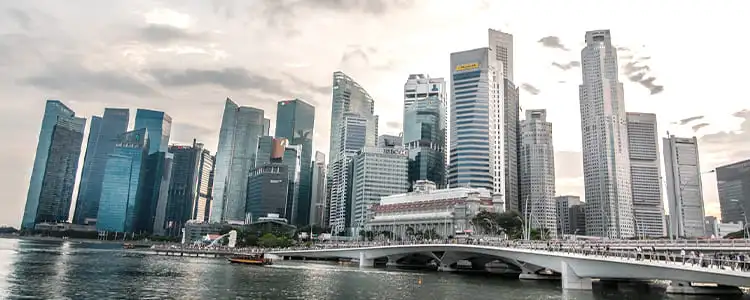Singapore passes Multinational Enterprise (Minimum Tax) Bill and Income Tax (Amendment) Bill

The Singapore parliament approved, on 15 October, the Multinational Enterprise (Minimum Tax) Bill, which seeks to implement two new top-up taxes under the OECD’s Base Erosion and Profit Shifting (BEPS) and ensure that Singapore is compliant with the international tax framework.
The Domestic Top-up Tax (DTT) and the Multinational Enterprise Top-up Tax (MTT) will apply from businesses’ financial years commencing on or after 1 January 2025. They will only apply to large multinational enterprise (MNE) groups with annual group revenue of €750 million or more in at least two of the four preceding financial years.
DTT will apply to the Singapore entities of a large MNE group and will be payable if the group’s effective tax rate in Singapore is below 15%. MTT will apply to large MNE groups that are parented in Singapore. If the effective tax rate of the MNE group’s entities in any foreign jurisdiction is below 15%, MTT will be imposed to top up the effective tax rate to 15%.
The Bill also provides the Comptroller of Income Tax with the powers to administer, collect, and enforce the DTT and MTT. Offences in the Bill include the failure to keep proper records, tax evasion and obstruction of the Comptroller. These powers and offences mirror those that already exist under the Income Tax Act 1947 and ensure that the Inland Revenue Authority of Singapore (IRAS) has the necessary powers to enforce compliance with the DTT and MTT.
The parliament also approved the Income Tax (Amendment) Bill, which implements the tax measures announced in the 2024 Budget Statement in February, as well as changes arising from the Ministry of Finance’s periodic review of Singapore’s income tax regime.
The Bill will introduce the Refundable Investment Credit (RIC), an expenditure-based grant delivered through the tax system. Companies awarded the RIC will receive tax credits to support their local expenditure in areas such as capital investments, R&D, manpower, and freight and logistics, when they make new investments in high-value and substantive economic activities.
These include the development or expansion of manufacturing facilities, setting up of HQs and services, pursuit of R&D and innovation activities, commodity trading, and decarbonisation.
The tax credits will be offset against corporate income tax payable in the first instance. If the RIC quantum exceeds the amount of taxes paid by the company, the unutilised credits will be refunded to the company within four years from the time the company makes the claim application in respect of the qualifying expenditures incurred.
Another key amendment in the Bill is in respect of the Renovation and Refurbishment Scheme (R&R Scheme), which specifically allows a deduction for R&R expenses, up to a cap of SGD300,000 every three years. Generally, R&R expenses are not tax-deductible because they are capital in nature.
The scheme is being enhanced in three ways:
- From Year of Assessment 2025, the scope of qualifying expenditure will be expanded to include designer and professional fees.
- The three-year period for determining the expenditure cap for all businesses will be standardised, with the first three-year period being from YA 2025 to YA 2027, instead of commencing when a business makes its first claim.
- Businesses will have a permanent option to claim R&R deductions in one YA, instead of over three YAs, providing more flexibility to manage cashflow.
